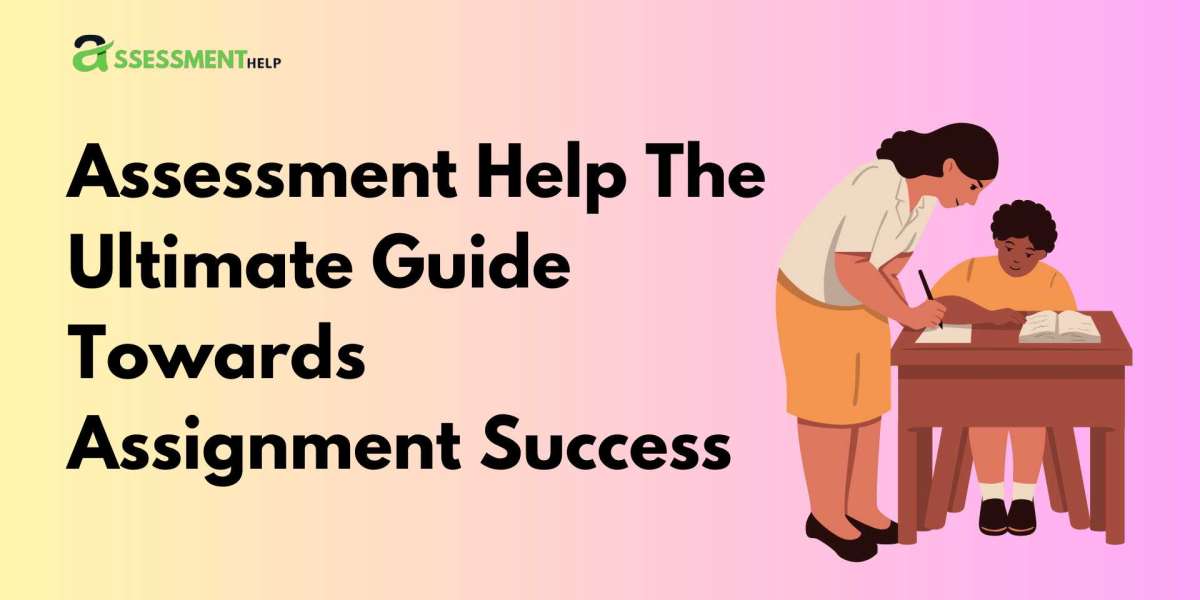In today's educational landscape, assessments are more than just tasks; they are pivotal assessment help that gauge a student's understanding and application of knowledge. Whether you're a high school student, undergraduate, or pursuing advanced studies, assessments play a crucial role in your academic journey. This comprehensive guide aims to equip you with the strategies and tools necessary to navigate assessments successfully, ensuring you achieve your academic goals with confidence.
Understanding Assessment Help Requirements
Every assessment begins with a set of instructions. Whether it's an essay, a research paper, a project, or a presentation, understanding the assessment requirements is fundamental to success. Here's how you can decode and analyze assessment instructions effectively:
Read Carefully: Start by thoroughly reading the assessment prompt multiple times. Pay attention to keywords such as "analyze," "discuss," "compare," which dictate the type of response expected.
Identify Objectives: Determine the main objectives of the assessment. Are you being asked to demonstrate knowledge, apply theories, argue a point, or propose a solution?
Note Constraints: Take note of any formatting guidelines, word limits, citation styles, and submission deadlines. These details are crucial for structuring your assessment correctly and ensuring compliance with academic standards.
Clarify Doubts: If any part of the assessment prompt is unclear, don't hesitate to seek clarification from your instructor or peers. It's better to resolve uncertainties at the beginning rather than risk misunderstandings later.
Planning Your Approach: Effective Assessment Strategies
Once you grasp the assessment requirements, the next step is to strategize your approach. Effective planning can significantly enhance the quality of your work and reduce stress throughout the process:
Create a Timeline: Break down the assessment into manageable tasks and create a timeline for each stage, from research and drafting to revision and finalization. This approach helps in prioritizing tasks and meeting deadlines.
Research Thoroughly: Conduct comprehensive research using credible sources relevant to your topic. Take notes and organize them systematically to facilitate easy referencing during the writing process.
Outline Your Ideas: Develop an outline outlining the structure of your assessment. This serves as a roadmap, ensuring coherence and logical flow from introduction to conclusion.
Seek Feedback: Share your outline or initial drafts with peers or instructors for constructive feedback. External perspectives can offer insights and suggestions for improvement.
Writing with Clarity and Precision: Crafting Your Assessment
With a solid plan in place, it's time to start writing. Here are some tips to help you articulate your ideas effectively and meet academic standards:
Introduction: Begin with a compelling introduction that sets the context and outlines the scope of your assessment. Clearly state your thesis or main argument to guide the reader.
Body Paragraphs: Organize your main points logically in separate paragraphs. Each paragraph should focus on a single idea supported by evidence, examples, or analysis.
Critical Analysis: Demonstrate critical thinking by analyzing the strengths and weaknesses of arguments, theories, or evidence presented. Avoid mere description; instead, engage in thoughtful evaluation.
Conclusion: Summarize your key findings and restate your thesis in the conclusion. Discuss the broader implications of your work and suggest potential avenues for future research or inquiry.
Refining Your Work: Editing and Proofreading
Once you've completed the initial draft of your assessment, it's essential to review and refine your work to ensure clarity, coherence, and correctness:
Editing for Structure: Check the overall structure and organization of your assessment help online . Ensure each section flows logically into the next and that your arguments are presented in a coherent manner.
Proofreading for Errors: Review your assessment for grammatical, punctuation, and spelling errors. Pay attention to formatting details such as margins, font size, and citation style adherence.
Seek Feedback: Ask a peer, mentor, or tutor to review your assessment. Fresh eyes can catch mistakes you might have overlooked and provide valuable suggestions for improvement.
Final Revision: Make necessary revisions based on feedback and proofreading. Ensure that your assessment meets all specified requirements before final submission.
Conclusion
Successfully completing assessments requires more than just academic knowledge; it demands strategic planning, critical thinking, and effective communication skills. By understanding assessment requirements, planning your approach, crafting your assessment with clarity, and refining your work through editing and proofreading, you can enhance your academic performance and achieve assessment success.
In conclusion, assessments are opportunities for learning and growth. Embrace each assessment as a chance to deepen your understanding of the subject matter and showcase your skills. With the right mindset and approach, you can navigate assessments effectively and excel in your academic journey. Remember, each assessment is a step towards achieving your goals and demonstrating your capabilities as a student.



